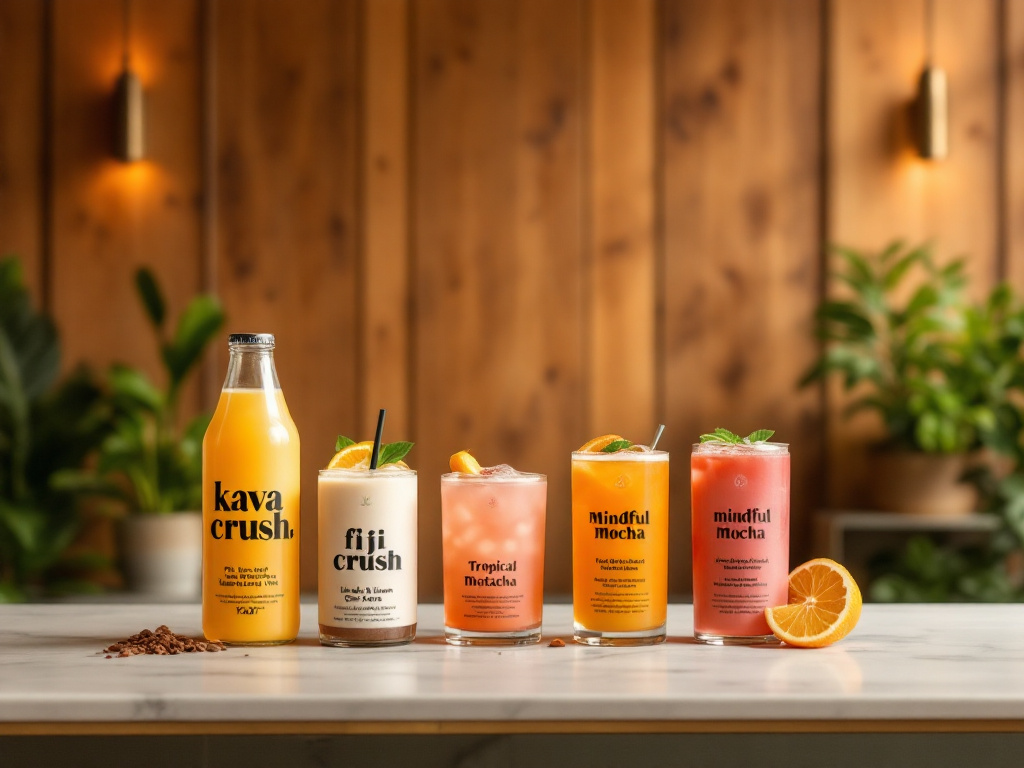News
The rise of functional beverages – Wellness and flavor in a glass
In the 2025 food landscape, functional beverages are gaining unprecedented popularity. These drinks, enriched with ingredients beneficial to health, offer consumers not only hydration but also support for mental and physical well-being.
A prime example of this trend is the inclusion of ingredients such as kava and magnesium in beverages. Kava, known for its relaxing properties, and magnesium, essential for muscle and nerve function, are increasingly present in drinks designed to improve mood and reduce stress. These formulations respond to the growing consumer demand for products that naturally support mental health.
At the same time, interest in sophisticated non-alcoholic beverages is on the rise. Consumers are looking for alternatives to traditional alcoholic drinks that offer complex flavors and functional benefits. This has led to the development of mocktails and other alcohol-free drinks enriched with adaptogens and nootropics, designed to provide a satisfying sensory experience without the effects of alcohol.
Additionally, the growing focus on gut health has stimulated innovation in the fermented beverage sector. Products like kombucha and kefir are experiencing a resurgence, with new variations incorporating superfruits, exotic spices, and natural sweeteners to satisfy modern palates. These beverages not only delight the taste buds but also provide essential probiotics for digestive well-being.
Sustainability remains a key factor in the evolution of functional beverages. Innovative companies are exploring the use of ethically sourced ingredients and eco-friendly packaging, responding to consumers’ increasing environmental awareness. This focus on sustainability not only enhances brand image but also contributes to a positive impact on the planet.
In conclusion, 2025 sees functional beverages emerging as key players in the food market, offering consumers innovative solutions that combine taste, health, and sustainability. This trend reflects a broader shift towards more conscious consumption choices and global well-being.
A prime example of this trend is the inclusion of ingredients such as kava and magnesium in beverages. Kava, known for its relaxing properties, and magnesium, essential for muscle and nerve function, are increasingly present in drinks designed to improve mood and reduce stress. These formulations respond to the growing consumer demand for products that naturally support mental health.
At the same time, interest in sophisticated non-alcoholic beverages is on the rise. Consumers are looking for alternatives to traditional alcoholic drinks that offer complex flavors and functional benefits. This has led to the development of mocktails and other alcohol-free drinks enriched with adaptogens and nootropics, designed to provide a satisfying sensory experience without the effects of alcohol.
Additionally, the growing focus on gut health has stimulated innovation in the fermented beverage sector. Products like kombucha and kefir are experiencing a resurgence, with new variations incorporating superfruits, exotic spices, and natural sweeteners to satisfy modern palates. These beverages not only delight the taste buds but also provide essential probiotics for digestive well-being.
Sustainability remains a key factor in the evolution of functional beverages. Innovative companies are exploring the use of ethically sourced ingredients and eco-friendly packaging, responding to consumers’ increasing environmental awareness. This focus on sustainability not only enhances brand image but also contributes to a positive impact on the planet.
In conclusion, 2025 sees functional beverages emerging as key players in the food market, offering consumers innovative solutions that combine taste, health, and sustainability. This trend reflects a broader shift towards more conscious consumption choices and global well-being.



